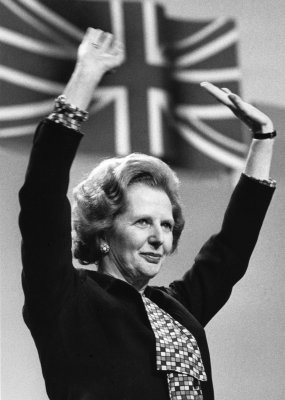Jimmy Hoffa: "I'm 62 years old. I shoulda been dead maybe 25 years ago, lived 3 lives. What all am I gonna be afraid of? Never was afraid in my life and don't intend to start tomorrow. Who's gonna bother me? If they do, well, then I'll do something with my bat. If they try to kill me and I am in a position to take away their gun or whatever the hell they're using against me and they get shot, that's their trouble; that ain't mine. Hell, I had people try to kill me. I survived it. Didn't have no bodyguard, but I survived a threat of being killed, an attempt to be killed; I'm still here."
Ed Karrens: 1975 was designated as International Women's Year by Executive Order of President Ford. But it took no official announcement for women to be part of the news in 1975. Carla Anderson Hills became the third woman to hold a Cabinet position as Ford named her Secretary of Housing and Urban Development.
And the first American-born saint was a woman. Mother Elizabeth Bayley Seton, called the Mother of Catholic Education, was canonized by Pope Paul in Rome.
In England, Margaret Thatcher became the first woman to lead a British political party. As she defeated incumbent Edward Heath in the first round of elections for the Conservative Party leadership.
In the arts, Sarah Caldwell became the first woman named to conduct the Metropolitan Opera House Orchestra.
And the U.S. military academies announced that beginning in 1976, women would be admitted as cadets and midshipmen.
The Equal Rights Amendment suffered a setback in 1975. Up until then, 34 states of the required 38 to ratify had approved of the proposed 27th Amendment to the Constitution. But large defeats by voters in New York and New Jersey made passage of the Amendment by the set date in 1979 questionable.
A trial in Raleigh, North Carolina received a lot of national attention, and the defendant, Jo Ann Little, mustered support by feminist and minority groups. Ms. Little, who is black, was on trial for the stabbing death of a jailer. Ms. Little's lawyers argue that she killed the jailer in self-defense against rape. Ms. Little became a symbol for the feminists and minority groups …
Jo Ann Little: "I don't like to think my sister is a symbol, but I think that women for so long have been afraid to voice their opinion about being raped or being in a situation, because they were afraid that their reputation would be in the states. You know, like the woman has always been on trial and not -- not the man. My thing into this -- in this thing here is how much justice will I get? If I don't get any justice, how is any other person gonna get any?"
Ed Karrens: In 78 minutes of deliberation, the jury found Jo Ann Little not guilty.
And finally by the women, a defeat for the men, or at least the boys: the National Girl Scout Organization vote in 1975 not to allow boys to become Girl Scouts...











